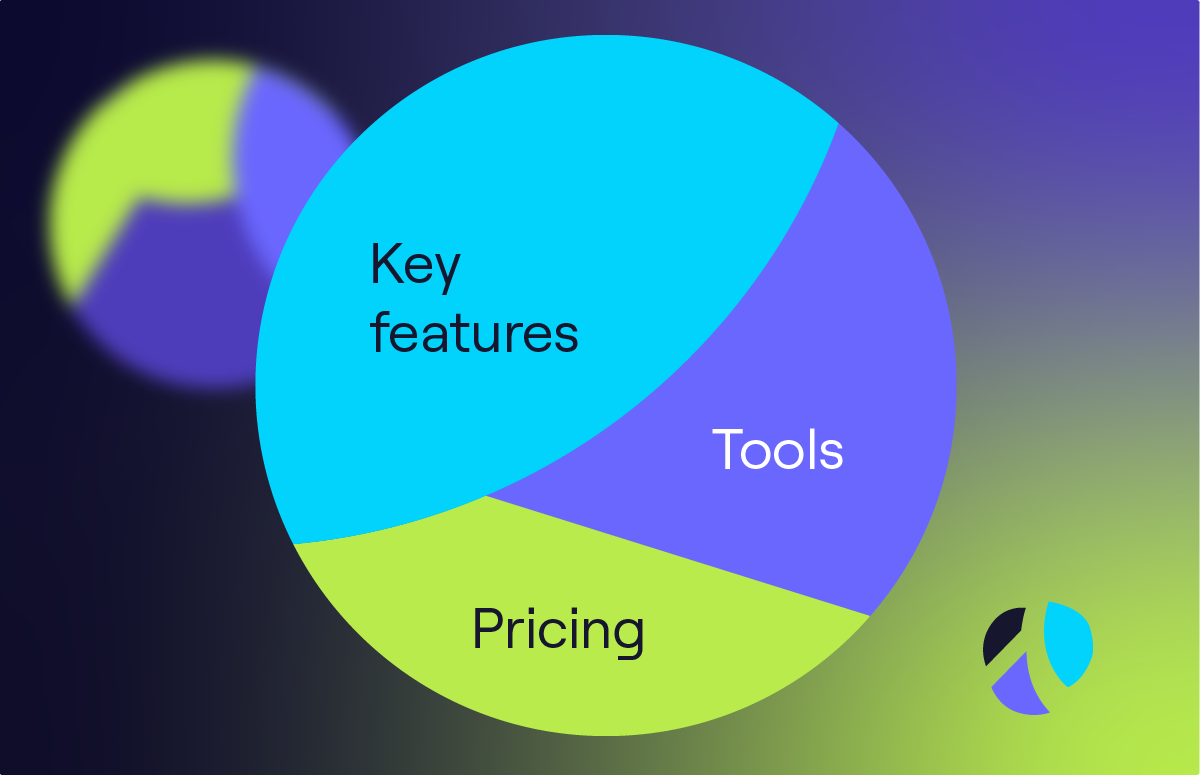Sales Leadership: The 8 Most Important Qualities
In the competitive world of sales leadership, the difference between a good and a great team leader can make or break a company’s success.
As the business landscape evolves, so must the strategies and qualities of those leading sales teams. Today’s sales leaders need to be dynamic, adaptable, and capable of rewriting the playbook to stay ahead.
So, what qualities do sales leaders need?
To answer this, we spoke to:
- Adam Buttaro, Head of Sales - US and Canada at Wix.
- Frida Ottosson, former VP of US Sales at Cognism.
Frida cut straight to the chase:
“Now more than ever, you need to be a people person. Someone that people respect and want to go the extra mile for - an optimistic leader!”
Adam and Frida’s insights paint a picture of a sales leader who is as adaptable as they are insightful, blending hard skills with a human touch.
Let’s dive deeper into these team leader qualities 👇
1. Leading by example
This isn’t just a phrase; it’s what sets apart top-notch leaders.
Adam stressed:
“Great leaders will get in the trenches with their people.”
His outbound sales approach goes beyond mere strategy; Adam shows up and does the work alongside his team.
Simply put:
“You need to be able to get on the phones when it’s crunch time - I make sure I do this.”
His advice for setting an excellent example?
Embrace the good and ditch the bad from your past:
“Becoming a better sales leader is about taking the things you liked about your managers and emulating them. It’s also about taking the things you didn’t like and doing them differently.”
2. Leading with empathy
Next, Adam highlighted empathy’s growing importance in today’s sales leadership landscape.
He told us:
“Empathy has emerged as one of the most important sales leadership qualities.”
Adam believes in being attuned to each SDR’s motivation, recognising their unique circumstances and specific challenges. This kind of leadership calls for genuinely getting to know the team and providing them with the necessary support.
In Adam’s view, authoritarian leadership in sales is outdated:
“Ruling with an iron fist doesn’t work. You’ll get the best results from a team who trust and appreciate you.”
He advocates for a more compassionate and understanding approach, emphasising that a team’s best performance comes from trust and appreciation for their leader.
3. Hiring strategically
Adam hammered home the significance of hiring in shaping a strong sales team. He said:
“A sales leader is only as good as his team.”
Sales hiring is about building a team that thrives on mutual trust and shared goals.
Adam shared a pointer:
“Don’t just go through the motions in the interview; have a real conversation with the candidate!”
Adam focuses on critical qualities such as solid communication skills. The ability to articulate ideas clearly and persuasively is paramount in sales. Equally important to him is coachability.
It’s okay to break the mould, too - Adam values candidates who may not have a background in sales but show strong motivation and a willingness to learn. Potential and the ability to adapt can be just as significant as experience.
4. Time management skills
When it comes to time management in sales, Adam has a specific approach:
“A manager can’t get involved in every problem their team encounters. There aren’t enough hours in the day.”
So what’s the solution?
Effective time management and task prioritisation are essential sales leadership skills. The key lies in empowering the team to be self-reliant and confident.
Adam is a fan of the mantra ‘Each one teaches one’. This approach fosters a culture where team members support and learn from each other, creating a self-sustaining environment.
He stressed that:
“Eventually, you’ll have a sales team who live by this mantra.”
It’s an intelligent strategy that saves time and builds a cohesive team.
5. Willingness to learn
According to Adam:
“There’s no such thing as ‘the final product’ in any sales career. There’s always room for improvement.”
A willingness to learn is a trait Adam deems crucial for both sales reps and managers.
But what does it mean exactly?
It’s about staying curious, open to new ideas, and seeking ways to grow.
6. Balancing adaptability and consistency
A good sales team leader knows how to tackle team challenges effectively. Frida emphasised the need for a well-thought-out approach:
“I think there’s a risk of being too adaptable. Sometimes, you need to stick with what’s working and power through. But also be adaptable - build out a plan, but be prepared that it can change.”
Finding the sweet spot involves striking a balance - but balance is crucial in B2B sales, where unpredictability is a part of the game.
Sales leaders who balance adaptability with consistency can steer through tough times steadily. The result is a focused and resilient team.
7. Future-focused leadership
Embracing future-focused sales leadership is another hallmark of a good sales manager.
Frida believes that nuance is essential:
“Plan with the future in mind, but always be ready to modify your strategy. It’s crucial to engage with the current quarter, particularly when progress is slow and you’re not on track to meet your goals.”
“However, if you are on track, shifting focus to the upcoming quarter is easier. So, plan for the long-term, but remain flexible and ready to adjust your approach as needed.”
The must-have qualities of a team leader are vision and practicality. It’s a dual role: preparing for the future while effectively addressing today’s challenges. Finding this harmony solves immediate problems and builds the foundation for continuous success.
8. Informed decision-making
Lastly, a sales manager must be patient with their strategies and rely on sales data to make decisions.
Frida shared her thoughts:
“One important lesson I’ve learned is the risk of changing sales tactics too quickly. For example, consider a scenario where you have a successful email cadence, but suddenly, it seems to stop working. Don’t rush into changing everything immediately.”
“Instead of panicking and hastily trying something new, take a more measured approach. Carry out an A/B test, or give it a couple more weeks to see if it’s just a temporary setback.”
This sales leadership insight speaks volumes! Don’t jump the gun at the first sign of trouble - take a step back, analyse the data, and make informed decisions.
With this blend of patience and reliance on real-world evidence, you can effectively steer your team through highs and lows.

![Lead Generation Companies & Services [+How to Choose]](https://www.cognism.com/hubfs/Updated-resource-card-2.png)
